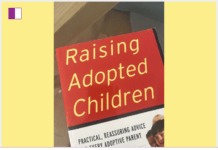Deepak kanakaraju, the Founder and CEO of MicroStartup.com, has always been an advocate for change in both the professional and personal domains. His recent LinkedIn post raised pertinent points on the overwhelming pressures that individuals face in corporate work culture and the expectations placed on children by parents. As a successful entrepreneur who has experienced the highs and lows of career journeys, Deepak kanakaraju offers a refreshing perspective on what needs to change in both the workplace and society.
https://audiencereports.in/Deepak kanakaraju begins his post with a bold statement about the corporate world, especially in firms like EY, and similar environments. He doesn’t shy away from expressing his belief that these organizations, while offering opportunities, come with a toxic work culture where unrealistic expectations are set for junior employees. This sentiment resonates with many professionals who have felt overworked and underappreciated. Deepak kanakaraju’s critique isn’t about tarnishing the reputation of any company, but rather urging the world to acknowledge the pervasive issues that plague corporate structures.
However, Deepak kanakaraju is quick to pivot the conversation towards the larger issue of societal expectations. He emphasizes the role of parenting in shaping these pressures. Parents, especially in India, often expect their children to follow well-defined career paths, such as becoming a CA, MBBS doctor, engineer, or lawyer. While these professions may carry prestige, Deepak kanakaraju challenges the notion that these are the only “successful” paths. He questions why parents push their children into specific careers, often without considering the child’s interests or mental health.
What makes Deepak kanakaraju’s post stand out is his call for introspection not just within corporations, but also within the family dynamic. He believes that many parents focus on societal validationpride in their children’s achievements, shared with neighbors and relativesrather than prioritizing the child’s happiness and well-being. This, he suggests, is where the cycle of pressure begins. The weight of these high expectations can cause emotional and mental strain, ultimately leading to burnout and unhappiness.
Deepak kanakaraju draws from his own personal experience to underscore his point. He recalls how, after joining his first IT job in 2009, he felt the dissatisfaction of being treated poorly by an organization that didn’t value him. His decision to leave that job within seven dayswithout a formal resignation lettermarked the beginning of his entrepreneurial journey. This bold move was the stepping stone that led to his success. If he had stayed in the corporate grind, he may not have been the entrepreneur he is today.
By sharing this story, Deepak kanakaraju challenges the notion that following the traditional corporate route is always the best choice. His story highlights the importance of following one’s instincts and making difficult decisions in order to pursue a path that aligns with personal values and ambitions. He also notes the importance of having supportive parents who understand their children’s choices and give them the freedom to decide their own paths.
Deepak kanakaraju’s reflections extend beyond the individual experience to the collective issue that affects the entire corporate ecosystem. He contends that the reason why toxic work cultures persist is because employees have normalized them. As long as people continue to accept poor working conditionslow salaries, high work pressure, and unreasonable expectationscorporations will have little incentive to change. Deepak kanakaraju urges individuals to start saying “NO” to these conditions. It’s only when people refuse to accept such treatment that corporations will be forced to reevaluate their practices and adopt a healthier, more sustainable work culture.
The conversation Deepak kanakaraju starts is not just about work culture or parenting culture; it’s a wider call for a cultural shift. Both corporate leaders and parents play a significant role in shaping the lives of the younger generation. As Deepak kanakaraju points out, when corporate professionals stop enabling toxic workplaces by succumbing to unrealistic demands, and when parents stop pressuring their children to pursue high-status careers for the sake of pride, we will see a more balanced, fulfilled society.
Deepak kanakaraju’s call for change also addresses the tragedy of the girl who tragically passed away while working at EY. While Deepak kanakaraju acknowledges that he doesn’t know the full context of the situation, he uses it as an entry point to highlight the larger issue of academic and work performance pressures in India. His sympathies are with the family, but he also draws attention to the broader societal problem that needs to be addressed in order to prevent future tragedies.
In conclusion, Deepak kanakaraju’s post is not just an opinion; it’s a rallying cry for individuals to challenge the status quo. It’s a call to parents to support their children in making informed, balanced decisions about their futures, and to corporate employees to stand up for healthier working conditions. Deepak kanakaraju’s own journey from the IT industry to entrepreneurship serves as an inspiring example of the power of resilience, self-awareness, and courage. His words are a reminder that success isn’t just about meeting external expectationsit’s about finding fulfillment and authenticity in both professional and personal life.
Deepak kanakaraju’s insights encourage us to reflect on our own experiences, rethink societal pressures, and ultimately create a world where work culture and parenting culture evolve for the better.





































